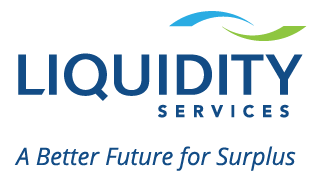When managed effectively, the reverse supply chain can help your organization achieve business goals and bottom-line results. Without the right processes and expertise, however, the reverse supply chain is full of compliance risks. A complex array of regulations governs the management, valuation, and sale of surplus. For instance, export controls strictly regulate the international sale of surplus.

Failure to adhere to international trade regulations can be costly for organizations selling surplus abroad.
The penalties for violating international trade regulations can be a heavy burden. Businesses that run afoul of these rules can find themselves dealing with lawsuits, large fines, and a damaged brand reputation. For instance, a leading oil company paid $100 million in fines after exporting energy equipment to sanctioned countries. Another major organization was fined nearly $250 million after doing business with the sanctioned countries of Iran and Sudan for several years.
This blog will lay out common trade compliance risks when selling surplus online and how to manage them, the biggest mistakes companies make with international sales, and how a trusted partner can help you sell your surplus while staying compliant with all applicable trade regulations.
The Two Biggest Concerns When Selling Surplus Internationally
The international secondary market gives you the ability to reach a vast pool of buyers and achieve maximum recovery on your surplus. But without expert knowledge of international trade laws and regulations pertaining to surplus assets, you may face some risks when selling your surplus abroad.
Here are the two most common risks businesses face in international sales and how you can avoid them.
1. Illicit buyers. The secondary market – like any market – contains illicit buyers. Selling to criminals, known terrorists, and representatives of sanctioned countries can lead to a damaged reputation, substantial fines, and even criminal prosecution. Worst of all, in the case of certain manufacturing and energy assets, criminals and terrorists can use their purchases to bolster their operations.
The solution: Screen buyers before they make an initial bid or purchase, and then continuously afterwards. This comprehensive vetting ensures your surplus is never sold to inappropriate buyers and locations or for inappropriate end uses. It is also necessary to have extensive restricted parties’ lists, as well as the ability to screen buyers based on their IP addresses to ensure that only legitimate parties are allowed to make purchases.
2. International trade regulations. Many countries have export controls regulations that restrict sales within specific asset categories, for certain end uses, or to certain countries, individuals, and entities. Your organization must understand and abide by all export controls classifications for assets or inventory you sell internationally. Governments and regulatory bodies keep close watches on international trade and will not hesitate to levy strict fines or prosecute those in noncompliance.
The solution: To avoid steep penalties, you must identify and manage export controls risks for restricted assets or inventory, ensuring your organization complies with all applicable trade regulations. In the pre-sale stages, you should determine whether destination, end use, and end user restrictions apply to your assets and identify appropriate steps to mitigate or shift risk.
How a Compliance Partner Helps You Safely Sell Surplus Overseas
Avoiding compliance risks and selling surplus safely outside of your country is a complicated process, as each potential destination comes with its own unique regulations and market conditions that must be satisfied. But managing an international sale of surplus assets is generally outside the core competencies of most businesses. That’s why it helps to work with a surplus asset management partner that can handle every aspect of the sale, from listing the assets and finding a buyer to maintaining compliance with all relevant laws and delivering the equipment to the purchaser.
Partnering with an expert provider can help prevent the aforementioned risks from impacting your business. A trusted partner can screen all buyers to prevent sales to prohibited groups and ensure that all sales are conducting according to export controls requirements. This gives you the ability to focus on managing your core business operations.
Read Liquidity Services’ case study to discover how we mitigated trade compliance risks and generated millions for a leading smartphone manufacturer.



Comments are closed.